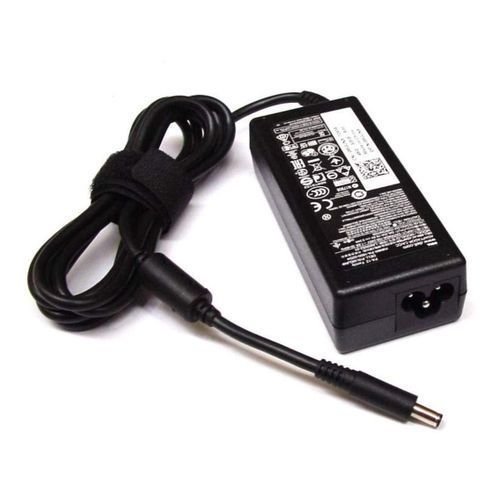Now Reading: Do Laptop Chargers Have Lithium Batteries
-
01
Do Laptop Chargers Have Lithium Batteries

Do Laptop Chargers Have Lithium Batteries
Laptop chargers do not have lithium batteries. Instead, they rely on a direct power connection.
Laptop chargers are essential accessories that allow us to power and charge our laptops. They provide the necessary energy to keep our devices running smoothly and efficiently. However, many people may wonder if laptop chargers contain batteries, particularly lithium batteries, commonly found in various electronic devices.
We will explore whether laptop chargers have lithium batteries or if they operate differently. Understanding the inner workings of laptop chargers can help us make informed decisions about their usage, maintenance, and potential hazards. So, let’s delve into the world of laptop chargers and find out how they power our laptops without relying on batteries.

Credit: www.amazon.com
Understanding Laptop Charger Components
Laptop chargers do not have lithium batteries. They consist of various components responsible for input and output voltage and amperage. The input voltage should match the power supply, while the output voltage and amperage must suit the laptop model.
Compatibility with different laptop models is crucial when selecting a charger. It is essential to ensure the charger specifications align with the requirements of your laptop. Laptop chargers typically comprise a power cord and an adapter that plugs into the laptop’s charging port.
These components work together to provide the necessary power for charging the laptop battery. Choosing the correct charger components is essential for efficient and safe laptop charging.
Exploring Common Laptop Charger Technologies
Laptop chargers are an essential accessory for portable computers. They come in various technologies, including ac adapters, dc adapters, and USB-c chargers. Ac adapters are commonly used for laptops and convert alternating current from a power outlet to a direct current.
On the other hand, DC adapters can be powered by a car’s cigarette lighter and provide a direct power source. Usb-c chargers have gained popularity due to their ability to charge multiple devices and transfer data. Although laptop chargers do not typically contain lithium batteries, they play a critical role in ensuring laptops’ efficient functioning and longevity.
Understanding the different charger technologies available is essential to ensure compatibility and optimal performance.
Understanding The Purpose Of Laptop Charger Batteries
Laptop chargers often incorporate lithium batteries to serve as backup power sources. These batteries provide functionality to ensure uninterrupted usage during power outages or when the laptop is disconnected from the main power supply. Understanding the purpose of these charger batteries is essential for laptop users.
The timeframe for battery usage varies depending on factors such as power consumption and charging habits. It is crucial to consider the lifespan of these batteries to optimize their performance. Additionally, proper handling and maintenance can help prolong their lifespan.
Being aware of the backup power functionality of laptop charger batteries allows users to make informed decisions regarding their usage and ensure a seamless computing experience. So, next time you plug in your laptop charger, remember the vital role of its lithium battery.
Debunking Common Myths
Laptop chargers do not typically have lithium batteries, debunking the misconception stated. Laptop charger batteries are not primary power sources; they are merely used for storing power temporarily. It is important to note that lithium batteries in laptop chargers do not pose any safety risks.
The myth surrounding this topic has created confusion among users. Many people falsely assume that laptop chargers contain lithium batteries and are potential hazards. However, manufacturers employ other technologies in chargers, making them safe to use. In reality, laptop chargers are designed to convert ac power from the electrical outlet into dc power to charge the laptop’s battery.
Understanding the truth behind these misconceptions can help users confidently use their laptops and chargers, eliminating unnecessary concerns.
Types Of Batteries Used In Laptop Chargers
Laptop chargers are equipped with different types of batteries, including lithium-ion, nickel-cadmium, and nickel-metal hydride. These batteries power up the chargers and make them functional. Thanks to their high energy density and longer lifespan, lithium-ion batteries are commonly used in laptop chargers.
These batteries are lightweight, compact, and do not suffer from memory effects, making them an ideal choice for laptop chargers. On the other hand, nickel-cadmium batteries, although less common nowadays, were popular in older laptop chargers due to their ability to hold a charge for extended periods.
Nickel-metal hydride batteries, known for their rechargeability and good energy density, were also used in laptop chargers. However, lithium-ion batteries have primarily replaced them due to the latter’s superior performance. Overall, laptop chargers employ different types of batteries to ensure efficient and reliable charging.
Factors Influencing The Presence Of Lithium Batteries
Factors influencing the presence of lithium batteries in laptop chargers include charger design, functionality, manufacturer preferences, availability, and cost efficiency. The design and functionality of the charger play a crucial role in determining whether it will incorporate lithium batteries. Manufacturers may have their preferences regarding using lithium batteries in their chargers.
Lithium batteries’ availability and cost efficiency also impact their presence in laptop chargers. It is essential to consider these factors to understand why some laptop chargers have lithium batteries while others do not. By examining charger design, manufacturer preferences, and lithium batteries’ availability and cost efficiency, we can gain insight into the presence or absence of these batteries in laptop chargers.
Advantages Of Lithium Batteries
Laptop chargers commonly come with lithium batteries, which offer several advantages. These batteries have a longer lifespan compared to other types. They also have faster charging times, ensuring that your laptop is ready to use in no time. Additionally, lithium batteries are lightweight and portable, making them convenient for travel or working on the go.
Smaller sizes make them easier to carry and don’t add unnecessary weight to your bag. Furthermore, their compact design allows for more efficient energy storage. Overall, lithium batteries in laptop chargers improve the user experience by providing longer-lasting power and faster charging capabilities.
Disadvantages Of Lithium Batteries
Laptop chargers do not typically have lithium batteries, but they have a few disadvantages. One of the significant drawbacks is their higher cost compared to other battery options. This can make laptop chargers with lithium batteries more expensive to purchase.
Another concern is the potential safety risks associated with lithium batteries, such as overheating and explosions. It is essential to handle these batteries with care. Additionally, there is an environmental impact associated with lithium batteries. The mining and disposal of lithium can have adverse effects on ecosystems.
Therefore, it is essential to consider these disadvantages when choosing a laptop charger and to be mindful of their impact on cost, safety, and the environment.
Frequently Asked Questions For Do Laptop Chargers Have Lithium Batteries
Do Laptop Chargers Contain Lithium Batteries?
Can Laptop Chargers Catch Fire?
How Long Do Laptop Chargers Last?
Conclusion
To wrap up, it is clear that laptop chargers do have lithium batteries. These batteries are commonly used because of their high energy density, long lifespan, and lightweight properties. The lithium batteries in laptop chargers help provide a stable and efficient power supply, ensuring the smooth operation of the laptop.
However, it is essential to note that not all laptop chargers have lithium batteries. Some may use different types of batteries depending on the laptop model and brand. If you are unsure about the kind of battery your laptop charger uses, it is always recommended to check the specifications provided by the manufacturer.
Proper care and maintenance of laptop batteries are crucial to prolong their lifespan and ensure optimal performance. Remember to follow the manufacturer’s guidelines for safe usage and disposal.







